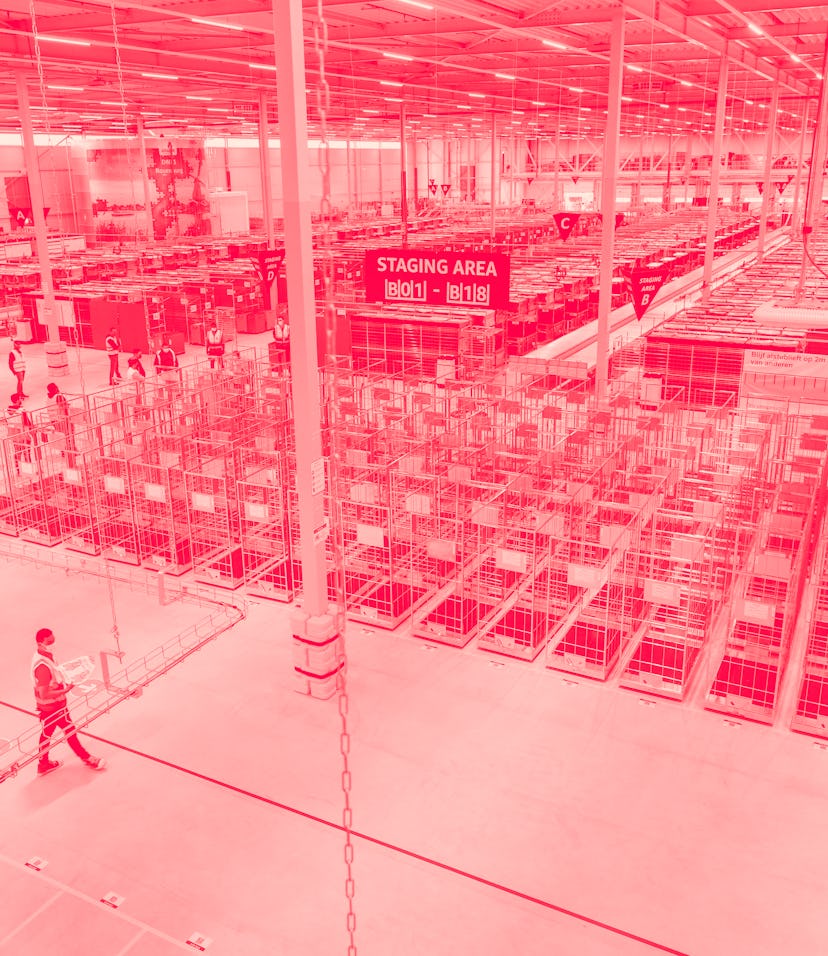Tech
As Delta variant rises, Amazon will end COVID testing in U.S. warehouses
The company told employees on Wednesday that testing will end after July 30.

Amazon told employees on Monday that it will soon stop testing for COVID-19 at its U.S. warehouses. The decision to stop tests after July 30 comes as the more infectious Delta variant of the virus spreads across America.
The Information first reported on the move, which is notable because Amazon has such a large number of its fulfillment centers located around the country. In some places where it has warehouses, like Arkansas and Mississippi, skepticism around the vaccine means that rates of inoculation are stubbornly low.
Pandemic winner — Amazon touted its efforts during the pandemic to protect frontline workers. It was slow to act initially, but eventually began making tests available at its warehouses, saying it wanted to test every worker for the virus and provide them with necessary protective equipment in order to ensure business continued as usual.
And business very much did continue as usual, with Amazon’s sales booming as stores were forced to close and consumers sought to stay safe at home. It’s believed that the pandemic likely accelerated some trends that were already happening away from legacy business and towards new Silicon Valley disruptors.
Concerning timing — In canceling the tests now, Amazon says that workers have many other public options available to them. “Free COVID-19 testing is now widely available and our employees have many options available to them, including through health providers and public testing sites,” its note to employees read. Amazon’s decision may be related to cost, or fewer workers getting tested. It only asked some, not all, workers to get tested. But encouraging continued testing would be a good idea in a closed environment like a warehouse.
The Delta variant that’s begun spreading in the United States is of concern because it’s more infectious than previous variants, and can be carried by people who have already been vaccinated. If you got your jab, it will protect you from the worst effects — but you could spread it to someone who hasn’t been vaccinated, and that would be problematic especially in the regions where people are resisting vaccines.
According to the Centers for Disease Control, unvaccinated individuals are experiencing a sharp rise in coronavirus cases. The Delta variant accounts for 83 percent of all cases in the U.S. now, a 33 percent increase from two weeks ago, though infections remain far from the peak. Continued testing could catch cases early and prevent the virus from spreading further. Greater immunization percentages could stop further mutations from developing that might be able to evade existing vaccines.
Even though vaccinated individuals can spread the coronavirus, they’re far less likely to do so than the unvaccinated. Stopping the spread is key to preventing the coronavirus from living on forever, like the flu, because each time coronavirus infects a new host it changes slightly until, theoretically, it starts evading existing vaccine protections. That’s why Amazon’s timing is not ideal; we’re not out of this yet but in fact going backwards.
Amazon’s rules around whether workers need to wear masks vary from facility to facility. The Information spoke to a worker at one warehouse in Minnesota who said coronavirus precautions are being rolled back.
Apple, on the other hand, yesterday announced it’s delaying its return to office by at least a month in response to the Delta variant.